External Intervention to Resolve the Israel – Palestine Conflict
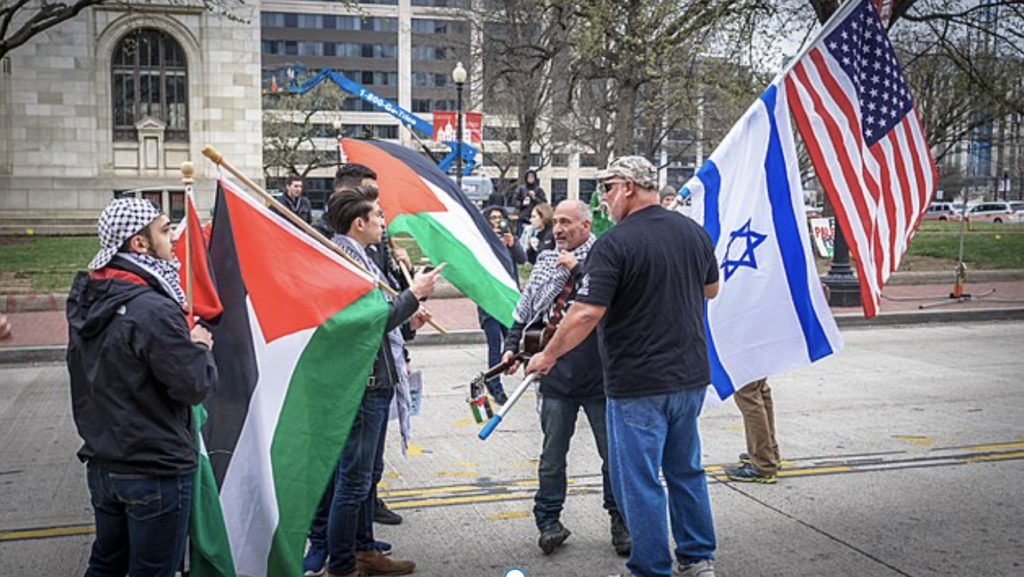
By: Ghassan Rubeiz / Arab America Contributing Writer
Remarkably, the Arabs remain committed to a regional peace plan with Israel, despite what is happening to Gaza. But Israel is fixated on ending Hamas.
Peril and hope:
The Israel-Palestine conflict is at a crossroads. Israel could continue to oppress Palestinians and face growing resistance with no end in sight. The brighter alternative would be the coexistence of Arabs and Jews. In Foreign Policy, Jordan’s Prince Hassan Ibn Talal and Tony Klug capture the current scene: With the benefit of long memories, we can confidently say that never in the history of the Palestinian-Israeli tragedy has the situation been as dire or perilous as it is today. But never has there been greater clarity about the essential components of a future peace settlement (Foreign Policy).
The Gaza war-hardened positions:
After October 7, Israelis united against Palestinians. And Palestinians are convinced that Israel is determined to annex what remains of their land through force and displacement.
Crippling fears now unite Israelis. Their leaders seem to believe that they can defeat Hamas and free the remaining 130 hostages simultaneously. Israeli fears seem to be rooted in a historical sense of “Jewish vulnerability”.
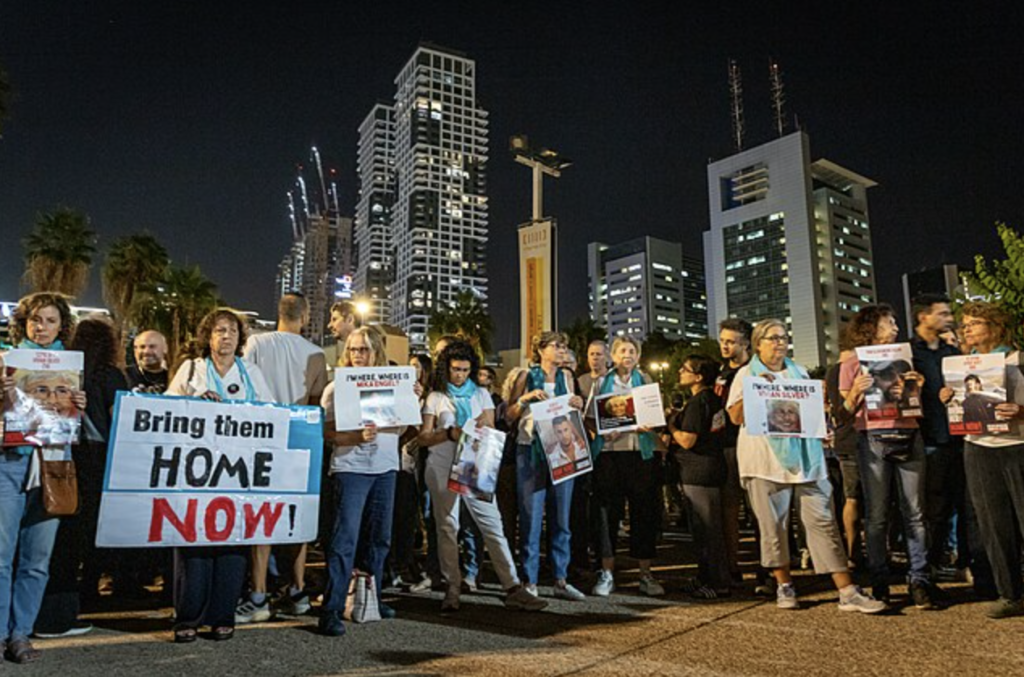
The broad picture is gloomy, but there are exceptional voices of moderation among Israelis and Palestinians. Still, some do imagine peace in their future.
Netanyahu’s miscalculation:
It appears that Prime Minister Netanyahu has miscalculated but is unwilling to retreat. After nearly four months of fighting, Hamas is still in command of its forces while the majority of the hostages are still captive. Focusing on personal political gains, Netanyahu has been ignoring the consequences of his reckless strategy on the hostages and the people of Gaza. A hundred thousand Palestinians have been killed or injured; the entire population of the Strip is internally displaced, and housing has been obliterated. Tens of thousands of Israelis are living away from their homes near the southern border with Gaza and the northern border with Lebanon.
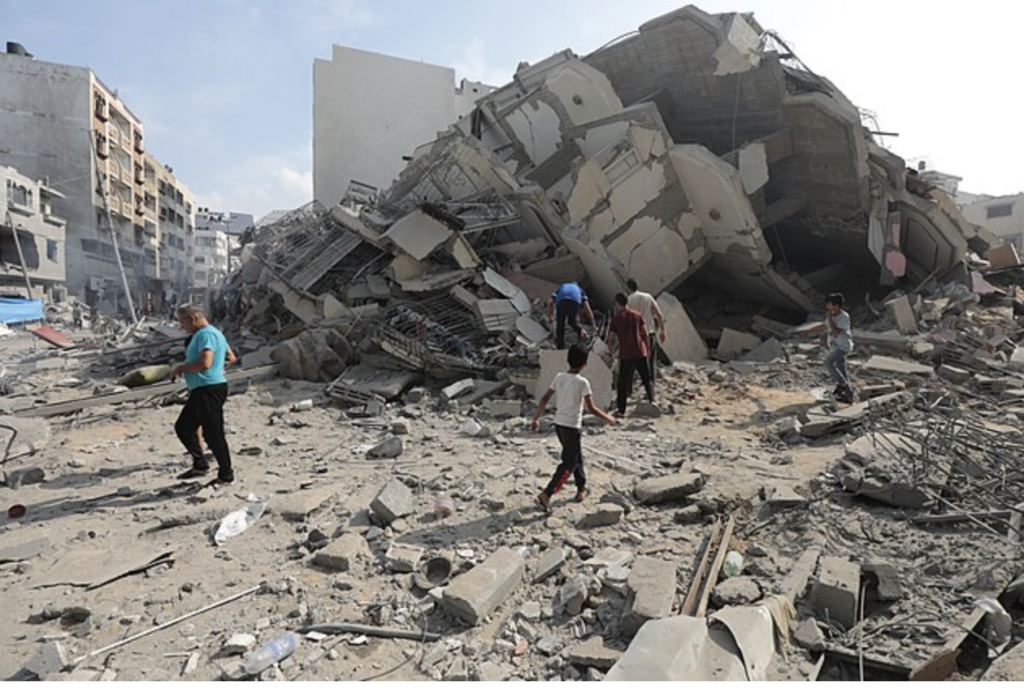
Pressure mounting on Israel:
Pressure on Israel is rapidly building domestically and internationally. The families of Israeli hostages have mobilized a very strong campaign against the current government, demanding the end of hostilities to free their loved ones. Business and former national security leaders are among those demanding the prime minister’s resignation. Last week, the International Court of Justice ordered Israel to be more protective of civilians, implying that the genocide claim charged by South Africa is plausible. President Biden seems to be furious with Netanyahu for rejecting the two-state solution and his plan to rule Gaza the day after the war ends. The leading officials of the European Union are also upset with Netanyahu’s unrealistic plans for Gaza and the future of Palestinians. Last month, all members of the UN Security Council, except the US, voted for a ceasefire. UNICEF, WHO, UNRWA, the World Food Program, and several other international human rights and service organizations have repeatedly expressed alarm about Gaza’s unlivable conditions.
It is hard to imagine that Israel’s cabinet can survive much longer. However, the future of Gaza and the fate of Palestinians will not be determined by the nature of Israel’s current or future government. Change will come only through external pressure, given the current political climate in Israel.
The occupation has gone too far:
Palestinians and Israelis seem to be entangled too deeply in the conflict to be able to find a solution on their own. Israel has occupied Palestinian communities since 1967, annexed much of their land, planted 700, 000 settlers in the West Bank and East Jerusalem, and created a web of rules and barriers to make life for the occupied communities unbearable. And over the past four months, the Israel Defense Forces have made Gaza unlivable.
For their part, Palestinians have complicated the conflict further. Their ideological divisions and the corruption of their leadership have offered Israel the excuse to manage the occupation and transform conquered territories into annexed land.
A paradigm shift in peacemaking needed:
It is my opinion that the Israel- Palestine conflict cannot be resolved from within. The international community, particularly the US and the European Union, must be responsible for developing a framework for resolving the conflict. For the past five decades, the peace process has failed since it had assumed that the two sides must agree on every aspect of the resolution. We cannot afford more decades of leaving the peace process in the hands of the protagonists. Neither side is fully clear on what it wants. The Israelis have not yet decided if they are to identify themselves as a secular or a Jewish society. And Palestinians are equally ambiguous about their secularity. There is no way that Palestinians and Israelis can agree on how to be good neighbors – either as two separate states, a one-state, or a bi-national state with equal rights for both communities- as long as they are not clear about their identity and their aspirations for the future. What is needed is mutual acceptance of identities and aspirations.
Israel is largely an international creation:
Without international endorsement, the British Government promised in the 1917 Balfour Declaration the creation of a “home for the Jewish people” in historic Palestine. In 1947, the UN partitioned Palestine into two parts: one Jewish and the other Arab. The smaller two communities, the Jewish side, received the larger part of Palestine. The Arab side was never enabled to form a political entity. In the sixties, France helped Israel build the first and only, atomic arsenal in the Middle East. The US helped Israel occupy the rest of Palestine in the 1967 war, and it helped Tel Aviv maintain the occupation in the 1973 war. For the past 75 years, Americans have helped to transform Israel into a regional power.
Arabs ready for peace:
Israel has acted as if it were entitled to ignore international law. Israel should feel fortunate that it does not have to be coerced by the international community to make peace since the Arab world has voluntarily accepted the presence of Israel. The Arab League is ready to establish regional peace with Israel, albeit, in the context of a resolution of the Palestinian question. The Israeli narrative tends to exclude any recognition of Palestinian readiness for peace; it suits the radical Israeli politicians to project Palestinians as terrorists.
For twenty years the Arab world has been open to negotiating peace with Israel through the Arab Peace Initiative, API, which the Arab League affirmed in 2002 in Beirut. The API is a land for peace deal: The Arab states would normalize relations with Israel if it withdrew from the occupied territories for the creation of a Palestinian state. Last month, Saudi Arabia softened its demands for normalization with Israel by asking Tel-Aviv to facilitate a “pathway” to a Palestinian state simply.
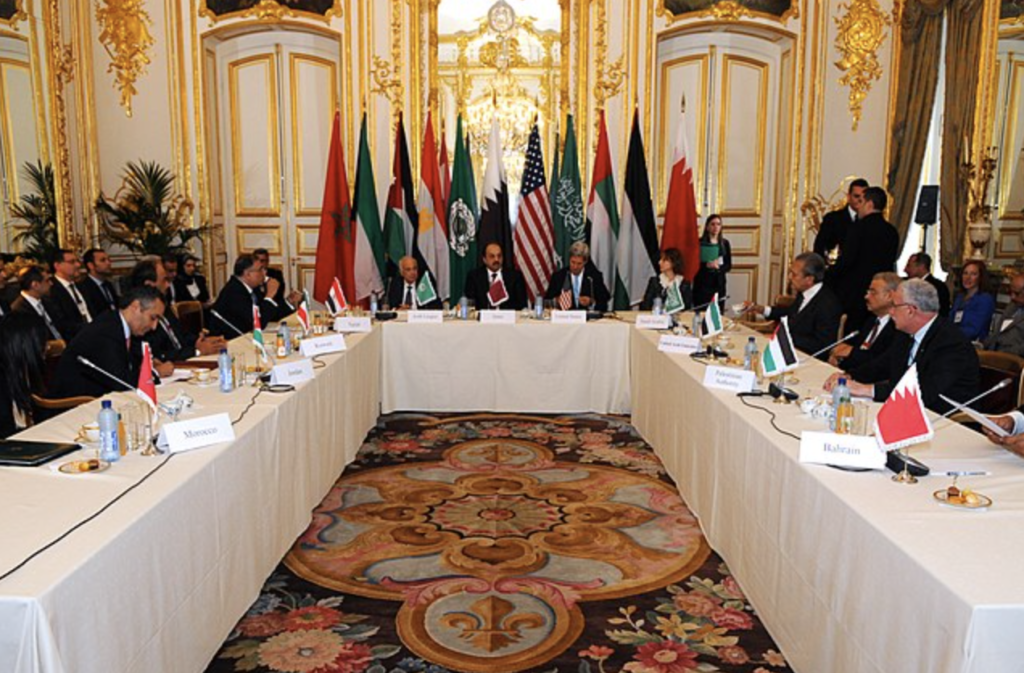
Integrating Israel’s monumental task:
By recognizing Israel as a possible regional partner, the Arab world is taking the risk of facing dramatic political changes in the region. Israel does not appreciate this kind of risk, as it is consumed by fear of the Palestinians. The truth of the matter is that Palestinians would be the best elements for facilitating Israel’s integration into the region. Many Palestinians speak Hebrew and have a long and broad experience of dealing with Israelis.
Currently, the center of political and economic power in the Arab world is the Gulf region. It has never been the case in the past. Israel should feel comfortable in dealing with the Arab Gulf States, one of the most culturally diverse environments in the world. The leaders of the Arab Gulf are offering Israel more than diplomatic recognition; they intend to partner with Israel in varied economic and technological projects, thus solidifying Israel’s integration in the region.
Peace would not last without the spread of security and prosperity. By negotiating statehood (or equality in a single state) to Palestinians, Israel would become an integral partner in a region that is opening up gradually to social change and political reform.
The suffering and destruction in Gaza, the West Bank, and Israel must not be forgotten. However, should this war end with a plan for regional peace, it will be a historical milestone of political and social transformation.
Biden has to act:
Considering Israel’s political and military dependency on Washington, President Biden is the key leader in accelerating external pressure on the current Israeli cabinet to end the war and open political negotiations. Sunday’s January 28 drone attack on US troops in Jordan should not distract Washington from its ongoing diplomatic efforts to stop the war in Gaza through a new hostage release deal. (The Washington Post)
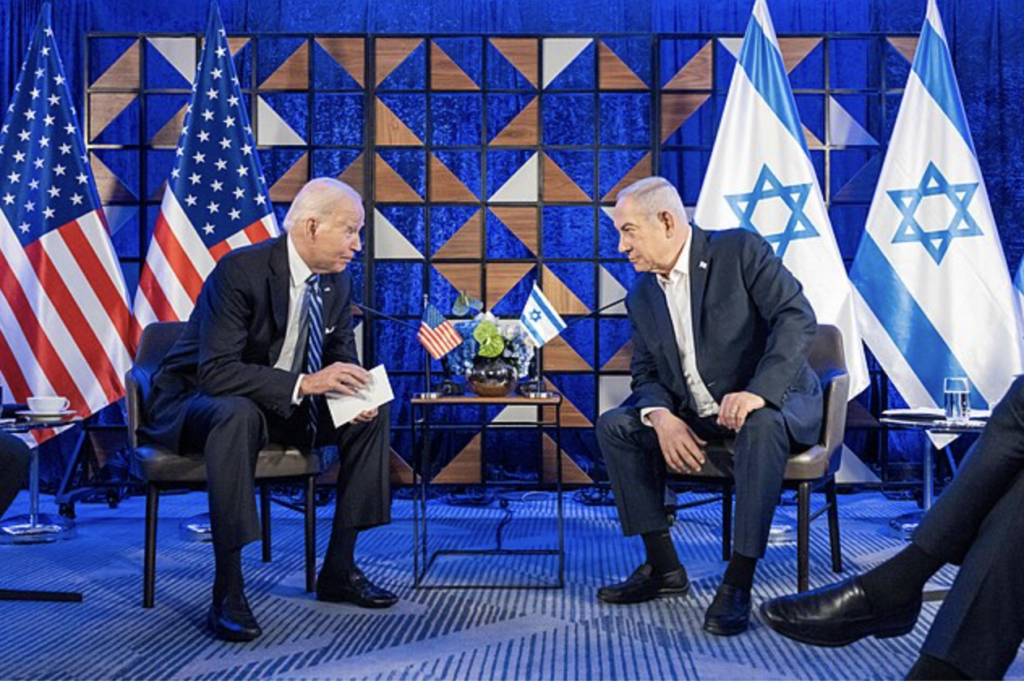
Israel must grab this historic peace opportunity, which may not last forever. Israelis and Palestinians should imagine a better future and work hard for it.
About the author: Ghassan Rubeiz is the former Middle East Secretary of the World Council of Churches. Earlier he taught psychology and social work in his country of birth, Lebanon, and later in the United States, where he currently lives. For the past twenty years, he has contributed to political commentary and delivered occasional public talks on subjects related to peace, justice, and interfaith. You can reach him at rubeizg@gmail.com
The views and opinions expressed in this article are those of the author and do not necessarily reflect the position of Arab America. The reproduction of this article is permissible with proper credit to Arab America and the author.
Check out Arab America’s blog here








